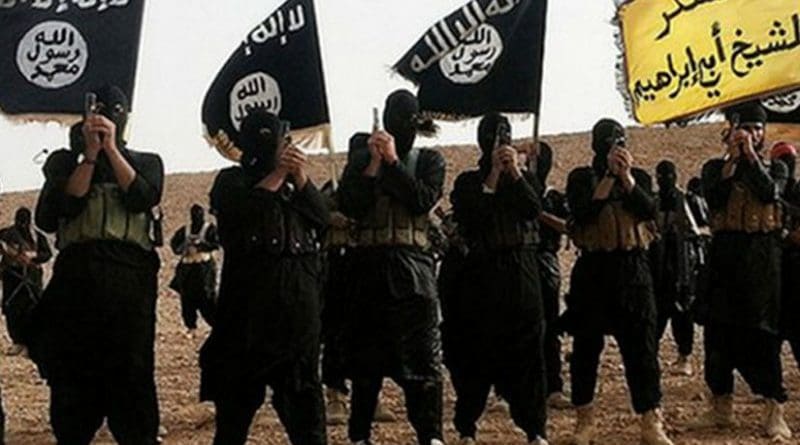Islamic State’s Tactical Continuity In Iraq: Will It Lead To Territorial Control? – Analysis
By IPCS
By Pieter-jan Dockx*
After the fall of the Islamic State’s (IS) so-called Caliphate and Iraqi Prime Minister Haider al-Abadi’s victory speech on 9 December 2017, there was widespread speculation regarding the future of the militant organisation. The prevailing narrative was that IS would depart from its aim of controlling territory and focus on attacks against security forces, and especially on terrorist attacks against civilians, much like its competitor al Qaeda. However, although attacks and kidnappings of civilians have been reported, the focus of the post-Caliphate IS’ operations seems to be on insurgent attacks against the state’s security apparatus and those collaborating with the state. By comparing this modus operandi with the group’s pre-Caliphate tactics, it can be argued that the IS has not yet abandoned its dream of establishing an ‘Islamic state’. While the re-emergence of a new full-fledged ‘Caliphate’ seems unlikely, small-scale territorial dominance remains a possibility.
Despite attacks against civilians (often non-Sunnis), the IS has primarily embarked on a campaign of targeted attacks against the Iraqi security forces, Shia militias, and political actors. The new approach has often involved setting up fake check-points to ambush government-linked security forces. This way, dozens of members of the Popular Mobilisation Forces (PMF), an umbrella organisation of predominantly Iran-linked Shia militias tasked with fighting the IS, and police officers have been killed in Diyala, Salahuddin and Kirkuk. In addition to the security forces, another group that has found itself in the cross hairs of IS are Sunni political figures, village chiefs and those belonging to tribes and organisations collaborating with the Iraqi government.
To understand how these attacks point to state-building intentions, the Salafists’ pre-‘Caliphate’ strategy needs to be examined. Apart from exogenous elements such as the civil war in neighbouring Syria, the US’ departure from Iraq, former Iraqi Prime Minister Nouri al-Maliki’s discriminatory policies and rampant corruption in the Iraqi security forces, an oft-ignored factor that paved the way for the ‘Caliphate’ was the IS’ strategy of targeted assassinations. In order to create a security vacuum in Sunni provinces, the group directed its attacks against the Sunni Awakening fighters–a movement of local tribal fighters enlisted by the US who had become the dominant local security actor. Moreover, the IS also targeted tribal chiefs, council members and Islamic Party representatives, with an objective of punishing those working with the government and to send a signal to those contemplating assisting the state.
Similarly, the current IS offensive has goals identical to their assassination campaign preceding the ‘Caliphate’. Despite the change in the dominant security actor (i.e. the PMF and the Iraqi security forces rather than the Awakening fighters), IS attacks against the new security guarantor foremost intend to weaken security in Sunni territories. Rumours of a possible return of Kurdish Peshmerga fighters to territory contested between the Erbil and Baghdad indicate the effectiveness of IS operations. Attacks against local political figures are meant to send a signal to those contemplating joining the state and its formal political process–much like it was in the run up to 2014. Attacks on civilians are especially aimed at those belonging to tribes that are aligned with the security forces.
A crucial factor that links these tactics to territorial ambitions is the element of popular support. In an attempt to re-capture Sunnis’ hearts and minds, the IS has largely refrained from mass-casualty causing terrorist attacks against civilians and instead targeted the Iran-linked PMF. These predominantly-Shia militias have been accused of abusing the local Sunni population and are, in some instances, refusing local leaders’ calls to disengage from their districts. Although the IS’ reign of fear in its ‘Caliphate’ has alienated many, their attempts to continue to spearhead the ‘Sunni cause’ could lead to a degree of local acceptance again. The previous instance of the IS’ rise and the associated suspicion of Sunni support for the group has created deep rifts between the various communities in the country. With some Sunni Arabs afraid to return to their multi-ethnic villages, suspicion of IS allegiance (that Iraqi Sunnis have been facing from non-Sunnis in the country) could ironically lay the foundation for future popular acceptance of the group. The aforementioned issue between the PMF and local leaders could equally witness some weighing their options.
Whether the IS will be able to re-establish territorial control over population centres will also depend on exogenous security developments in the country. While security in Sunni areas has no doubt improved in comparison to the 2013-14 period, two recent events have cast shadows over this relative stability. First, US President Donald Trump’s decision on the Joint Comprehensive Plan of Action (the Iran nuclear deal) has led to increased tension between PMF factions and US forces, whose alliance formed the backbone of the fight against the IS and the resultant stability. Second, with the results of Iraq’s May 2018 election being challenged and leading to tension between the various political factions, stability is in jeopardy again. Much will depend on the future trajectory of these developments.
Contrary to popular predictions, the IS has not embarked on an al Qaeda like campaign of mass civilian killings. Similar to its pre-‘Caliphate’ tactics, the group has used calculated attacks intended to weaken security, instil fear and pave way for popular support. All these factors point to a continuity in the IS’ territorial ambitions. With the current security situation more volatile than is portrayed in the mainstream media, the possibility of the IS gaining localised territorial control of populated areas in the future cannot be ruled out.
*Pieter-jan Dockx
Research Intern, Centre for Internal and Regional Security (IReS)

